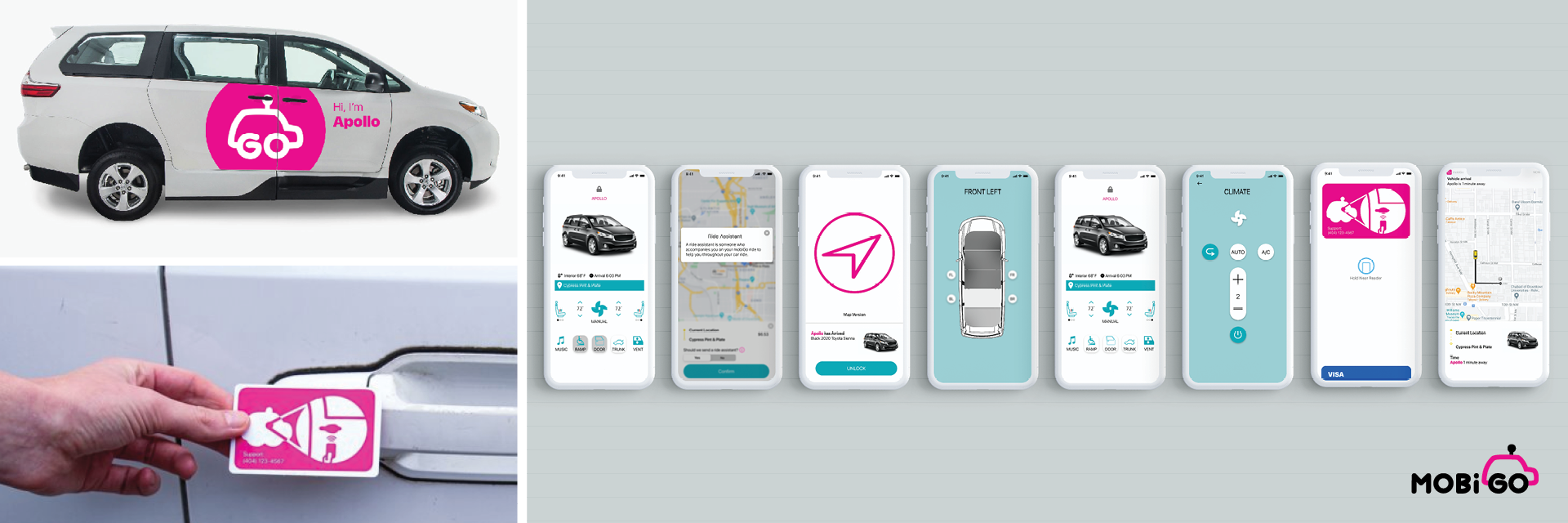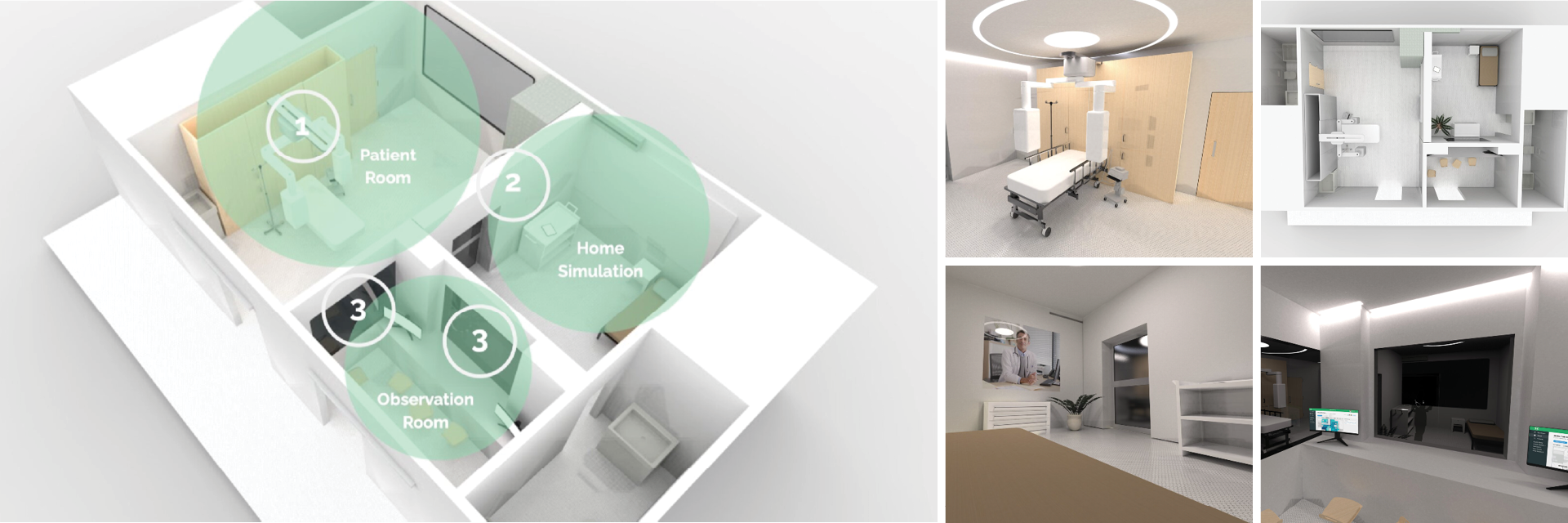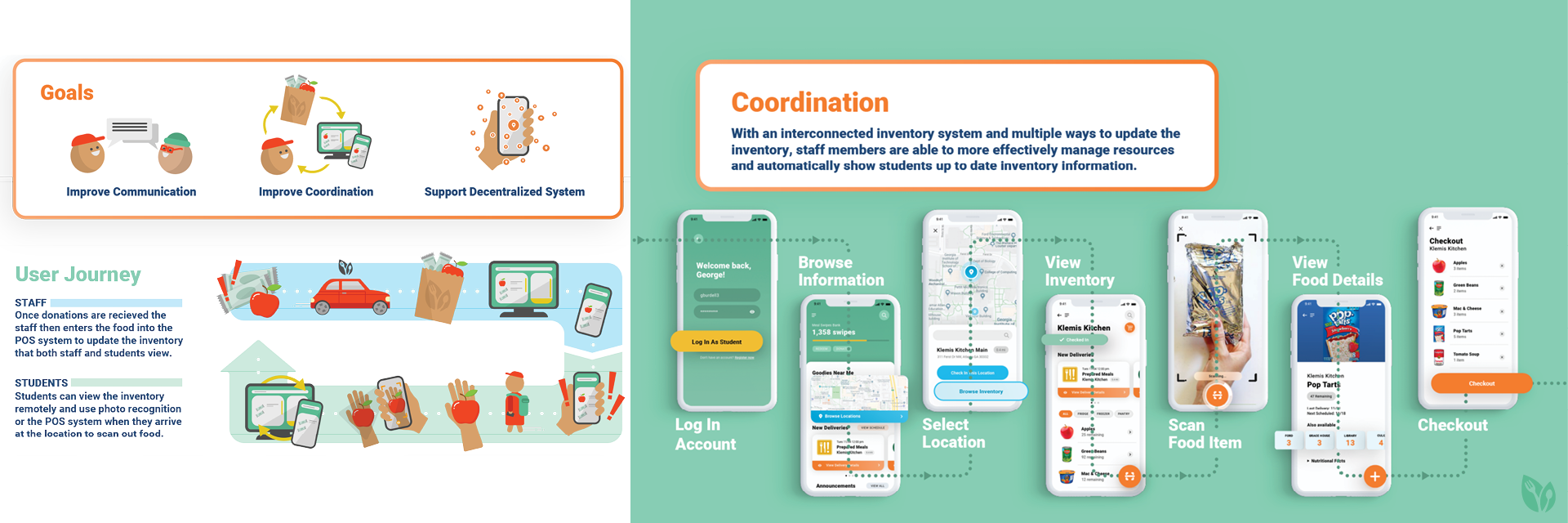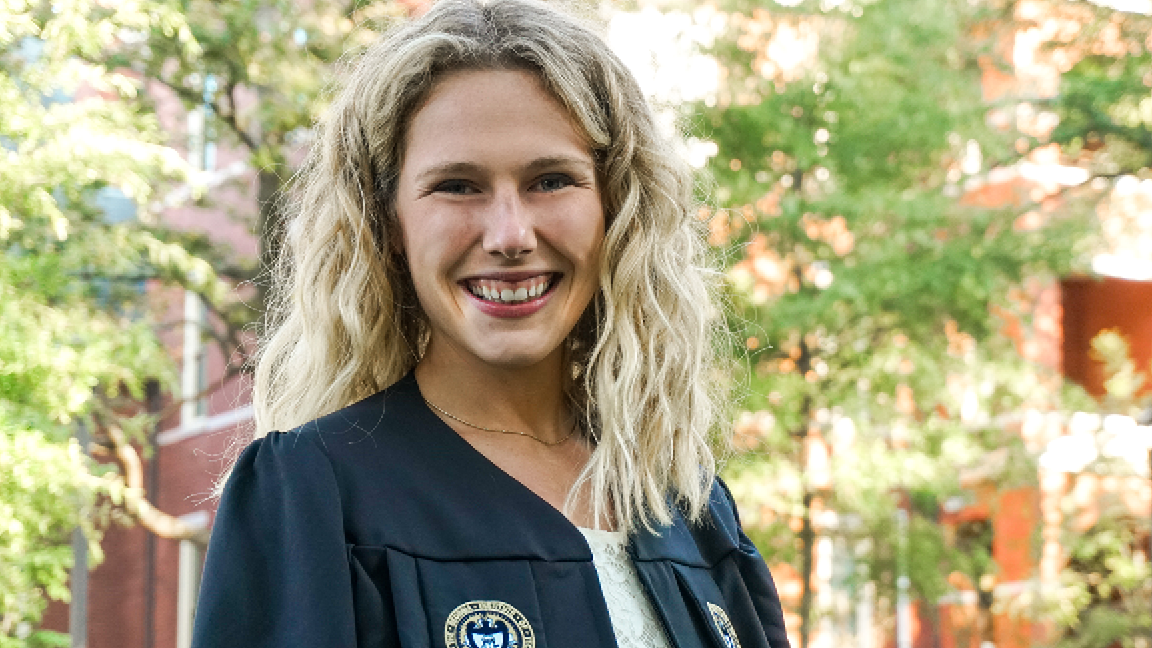
Teammates:
Berri Berto, John Flowers, & Jack MacLeod
Class: ID 4081 | Instructors: Dr. Stephen Sprigle, Wayne Li
Through need-finding it was discovered that transportation is one of the largest barriers for people with disabilities to engage with the community. They need a form of transportation that is personalized and instills confidence in their ability to travel independently.
The objective of the mobiGo service was to develop a feasible and inclusive design solution that will facilitate individuals with disabilities in accessing automated driving systems to alleviate transportation burdens in the following areas: planning, locating, entering, securing, inputting, interacting, and exiting. MobiGo will use post modified vehicles and act as a private service. For people who want personalized transportation on-demand, the mobiGo service utilizes self-driving vehicles and is inclusively designed to accommodate everyone's need for an affordable, efficient, and accessible way to travel independently.
ADA guidelines and Federal Motor Vehicle Safety Standards provided the service with dimensionality, visual specifications, and safety requirements, which influenced the design decisions. MobiGo is aligned with the current trajectory of the development of the IoT system including autonomous vehicles, sensors, and GPS, and trends of existing transportation systems.

Children's Healthcare of Atlanta
Teammates:
Jay Burnett, Seth Cruver, Anna Teachout
Class: ID 3032 | Instructor: Herb Velazquez
To design a healing experience through a reconfigurable living laboratory hospital room of the future that can be transformed from bedroom to hospital room, to ICU in order to allow physicians to test new equipment and technology to improve patient recovery outcomes. The room will feature a new high tech experimental state of the art diagnostic monitoring and therapeutic technologies. Featuring floor lighting, a robotic wall, an OLED window, telemedicine, observation windows, and a boom cabinet, the class split into teams to delegate the tasks. My specific roles were initial design research, room layout testing, and model making.
Our class converged into one final concept with all 12 studio members which tested and improved my communication and team-based abilities. The real-world implications of the project were evident throughout the process as we continuously checked in with our client to ensure we exceeded their criteria and expectations.

My Klemis
Teammates:
Swaraj Agarwal, Karina patricia, Morgan Platt, Hannah Ranieri, Brittany Ritter, Mohammad Soudachi
Class:
ID 3031 | Instructor: John Sanford
Klemis Kitchen serves as a food pantry for Georgia Tech students with dietary needs and financial concerns that limit their access to proper nourishment. With large goals to grow internally as well as across campus there are many logistical aspects that need to be addressed to allow for growth. The My Klemis App aims to provide a domain for both staff and students to improve efficiency of resource management in Klemis Kitchen.
Due to current distribution, communication, and supply conditions, there is an opportunity to improve the efficiency of the resource management within Klemis. Klemis needs an improved system that would facilitate communication between locations and users in order to support a decentralized distribution system in the future.
